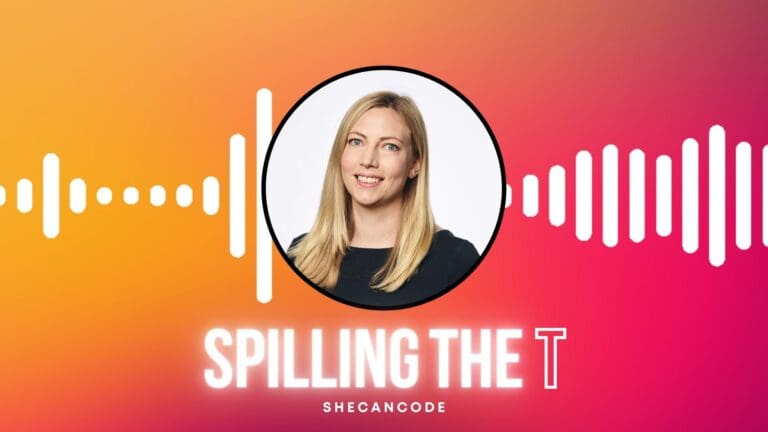Open source contributions demonstrate practical skills, collaboration, and problem-solving abilities—all highly valued by employers.
Here’s a beginner-friendly guide to getting started with open source projects as a woman in tech.
Understanding Open Source
Open source software is publicly available for anyone to use, modify, and distribute. Contributing allows you to:
- Collaborate with developers around the world
- Improve your coding, documentation, or design skills
- Build a visible record of contributions for your portfolio
- Learn best practices in software development and project management
SheCanCode emphasizes open source as a pathway to practical experience for women looking to break into tech. Find more resources in our resources hub and community.
Finding the Right Project
Choosing the right project is crucial:
- Align with your skills: Start with technologies or frameworks you’re familiar with.
- Consider your interests: Projects that match your passions make contributions more enjoyable.
- Check the community: Active, welcoming communities are more supportive for beginners.
- Look for “good first issue” tags: Many repositories label beginner-friendly tasks to help newcomers get started.
Platforms like GitHub, GitLab, and Bitbucket host countless open source projects across all skill levels.
Getting Set Up
Before contributing, prepare your environment:
- Fork the repository: Create your own copy of the project to work on.
- Clone the repository: Download it to your local machine.
- Set up your environment: Follow project instructions to install dependencies and configure tools.
- Test the project: Ensure it runs correctly before making changes.
This setup process familiarizes you with the project structure and coding standards.
Types of Contributions
Open source contributions aren’t limited to code. You can contribute in various ways:
- Coding: Fix bugs, add features, or optimize performance.
- Documentation: Improve instructions, tutorials, or readme files.
- Design: Enhance UI/UX, create graphics, or improve accessibility.
- Testing: Write test cases or report issues to help maintain quality.
SheCanCode encourages women to contribute in ways that match their skills while gradually expanding into new areas. Find your network inside our community.
Making Your First Contribution
Steps to successfully contribute:
- Identify a task: Start with a beginner-friendly issue.
- Understand the codebase: Read through relevant files and documentation.
- Make changes locally: Implement your fix or addition in your fork.
- Test your changes: Ensure your contribution works without breaking existing functionality.
- Submit a pull request: Provide a clear description of your changes and reference the issue.
- Respond to feedback: Collaborate with maintainers and revise your contribution if needed.
This process develops technical skills, collaboration abilities, and familiarity with version control systems.
Building a Portfolio with Open Source
Open source contributions strengthen your portfolio:
- Showcase real-world projects: Employers value practical experience.
- Demonstrate collaboration: Highlight teamwork, code reviews, and communication skills.
- Track contributions: Use GitHub activity or contributions dashboard to display work.
For junior developers or designers, this can complement personal projects and internship experience.
Networking and Mentorship
Open source communities provide opportunities for networking and mentorship:
- Connect with maintainers: Learn from experienced developers.
- Join forums and discussion boards: Ask questions, share knowledge, and build relationships.
- Participate in events: Hackathons, open source sprints, and online meetups enhance learning.
SheCanCode offers mentorship and workshops that guide women in tech through open source contributions, providing additional support and encouragement.
Staying Consistent and Growing
Consistency is key to making meaningful contributions:
- Set regular goals: Contribute weekly or monthly to stay engaged.
- Expand skillset gradually: Take on more complex issues over time.
- Document your learning: Keep notes on challenges, solutions, and new skills.
- Share your journey: Blog about contributions, or include them in your portfolio.
Over time, open source contributions can become a strong demonstration of your capabilities to employers.
Final Thoughts
Contributing to open source is a powerful way for women in tech to gain experience, develop skills, and build a professional network. By choosing the right project, making thoughtful contributions, and leveraging mentorship and community support, you can turn open source involvement into a career advantage.
SheCanCode provides guidance, mentorship, and community support to help women navigate open source contributions effectively, build strong portfolios, and access inclusive employers.
Looking for your next job opportunity? Check out our job board.







